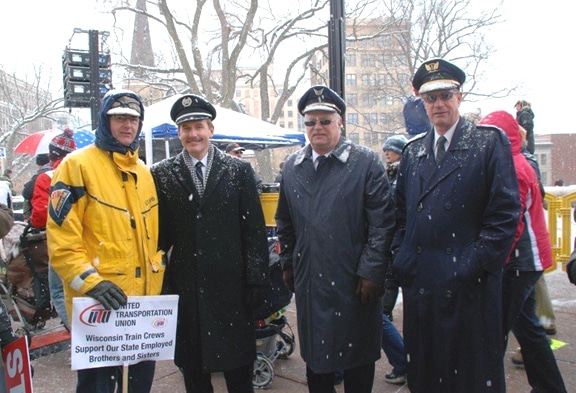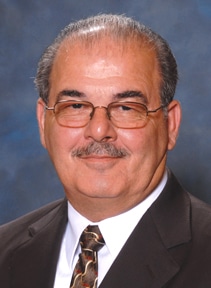WASHINGTON — Federally mandated improvements to locomotive cab security and comfort, along with enforceable remote control operation (RCO) regulations, are being sought by the UTU and the BLET in joint comments filed with the Federal Railroad Administration.
Significantly, the FRA is being asked to ban remote control operation on mainline track.
The two organizations responded to an FRA Notice of Proposed Rulemaking to update, consolidate and clarify existing locomotive safety regulations.
Following are the requests made by the two organizations to the FRA:
Locomotive cab security
A fatal shooting of a conductor and wounding of the engineer, by a street thug in New Orleans in June 2010 highlight the imperative of enhancing crew member cab security. But sealing the locomotive cab also requires adequate air conditioning and improved window glazing (bullet resistant material).
Extreme heat in the cab can accelerate crew fatigue, slowing reaction time and compromising train safety.
Requested of the FRA is a requirement that all newly purchased and reconstructed locomotives — as well as locomotives already equipped with air conditioning — maintain an interior cab climate of between 60 degrees and 80 degrees Fahrenheit.
As for window glazing, the two organizations said, “If a glazing is available that can protect operating employees from most of the firearms available to common criminals, then FRA should require the installation of such glazing on the locomotives.”
Remote control locomotives
The UTU and the BLET note that the FRA has yet to issue enforceable regulations for the operation of remote control locomotives. It is time to do so, they said, and the regulation should include a prohibition of RCO on mainline track.
“The manufacturers of the remote control locomotive technology in use today designed the software and equipment for switching operations, not mainline movements,” the organizations said.
Additionally, the organizations seek a regulation mandating remote control operator units “be as simple in design and uncluttered with any function not necessary for safe operations.”
The UTU and the BLET also asked the FRA to develop an improved electronic record-keeping system for employee on-duty hours in remote control service. Under the FRA’s current record-keeping, they said, it is difficult to compare accurately the number of employee hours worked in remote control switching versus conventional switching.
“Switching hours must be accurately recorded so that the number of accidents, incidents and fatalities can be compared on an apples-to-apples basis,” the UTU and the BLET said.
Improved locomotive seats also are requested. The organizations said railroads continue to scrimp on proper seating on new locomotives without regard for the safety or health of crew members — an effort to save a mere $220 on a $2.2 million locomotive. Such penny-pinching, said the organizations, is “shamefully inconsistent with providing a safe working environment.
“Improper and unsafe seats have caused many injuries and illnesses to operating crews in the past decades, and now is the time for FRA to accept the scientific facts and offer requirements for specifications of locomotive seats on occupied locomotives,” said the UTU and the BLET.
Said UTU International President Mike Futhey: “Safety regulations with real teeth in them are long overdue.”
Said BLET National President Dennis Pierce: “BLET and UTU remain united and unwavering in our commitment to the safety and security of our members.”
Click here to read the 21-page joint UTU-BLET submission to the FRA.

 By Vic Baffoni Vice President, Bus Department
By Vic Baffoni Vice President, Bus Department